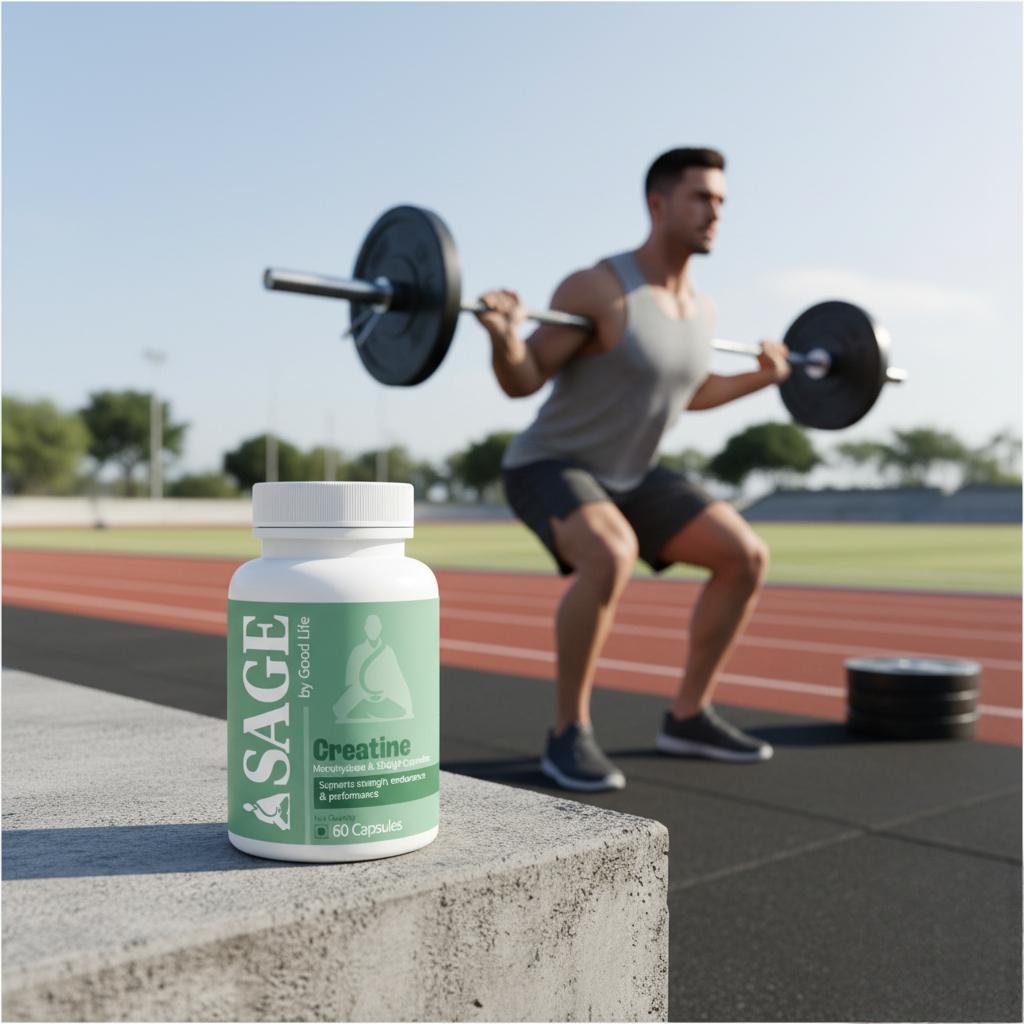
Creatine for Explosive Sports: Sprinting to Weightlifting
Share
Introduction
Creatine is one of the most researched and widely used supplements in sports nutrition, renowned for its ability to enhance explosive power and strength. It benefits a broad range of athletes involved in high-intensity, short-duration activities such as sprinting, weightlifting, jumping, and other explosive sports. This blog explores how creatine supports performance across these disciplines, explaining its mechanisms, benefits, optimal use, and safety to help athletes maximize their potential.
What is Creatine?
Creatine is a naturally occurring compound found mainly in muscle cells. It helps regenerate adenosine triphosphate (ATP), the primary energy currency of the body, especially during short bursts of intense exercise. Supplementing with creatine increases the phosphocreatine stores in muscles, allowing for quicker ATP resynthesis, which fuels repeated maximal efforts critical for explosive sports.
Creatine’s Role in Sprinting Performance
Sprinting demands rapid and powerful muscle contractions over a brief timeframe. Creatine supplementation enhances phosphocreatine availability, allowing sprinters to perform repeated sprints with less fatigue. This improves acceleration, explosive power, and overall sprint capacity during training and competition, enabling better performance in events ranging from 100-meter dashes to interval training sessions.
Benefits for Weightlifting and Powerlifting
In weightlifting and powerlifting, maximal force production and muscle strength are essential. Creatine boosts strength output by replenishing ATP stores during intense lifts, supporting higher training loads and increased volume. It also promotes muscle volumization aiding muscle size and recovery contributing to long-term strength and hypertrophy gains vital for power athletes.
Supporting Other Explosive Sports
Beyond sprinting and lifting, creatine benefits athletes in sports requiring quick bursts of power such as football, basketball, volleyball, and martial arts. Enhanced energy availability improves reaction time, jumping ability, and repeated high-intensity efforts, helping athletes maintain peak performance throughout games or bouts.
Mechanisms of Action Behind Creatine’s Effectiveness
Creatine increases muscle phosphocreatine, enabling rapid ATP regeneration essential during explosive efforts. It also buffers lactic acid accumulation, delaying fatigue onset. Creatine influences cellular hydration, stimulating muscle protein synthesis and promoting recovery. These combined actions support both acute performance and long-term adaptations to training in explosive sports.
Optimal Dosage and Timing for Explosive Athletes
Typical creatine loading involves 20 grams daily for 5-7 days followed by a maintenance dose of 3-5 grams per day. However, skipping loading and taking a consistent daily dose also results in benefits over a longer period. Timing creatine intake around workouts can enhance uptake but regular daily consumption suffices. Hydration and consistent use are critical components for effectiveness.
Safety and Side Effects
Creatine is widely considered safe for healthy individuals when used in recommended dosages. Mild side effects may include gastrointestinal discomfort or water retention. Concerns about kidney damage have been disproven in healthy populations with proper hydration. Athletes with pre-existing conditions should consult healthcare providers, but for most, creatine is a safe and effective ergogenic aid.
Creatine and Muscle Recovery
In addition to boosting performance, creatine supports recovery by reducing muscle cell damage and inflammation following intense exercise. This accelerates healing and sustains training frequency, essential for athletes in demanding explosive sports. Improved recovery translates into consistent progress and reduced injury risk.
Combining Creatine with Other Supplements
Creatine is often stacked with protein powders, beta-alanine, and BCAAs to synergize effects on strength, endurance, and recovery. Beta-alanine complements creatine by buffering acid during high-intensity efforts, further enhancing performance. Combining supplements should be guided by individual goals, tolerances, and professional advice.
Practical Tips for Athletes Using Creatine
Athletes should choose high-quality creatine monohydrate, the most researched and effective form. Maintaining adequate water intake maximizes muscle hydration effects. Creatine is not a stimulant and works best as part of a comprehensive nutrition and training program. Regularly assessing performance and adjusting intake based on response ensures optimal results.
Conclusion
Creatine remains a cornerstone supplement for athletes engaged in explosive sports from sprinting to weightlifting, due to its proven ability to enhance power, strength, and recovery. Its role in regenerating cellular energy, delaying fatigue, and supporting muscle adaptation makes it an indispensable tool in sports nutrition. When used responsibly and consistently, creatine empowers explosive athletes to push their limits and achieve peak performance.





